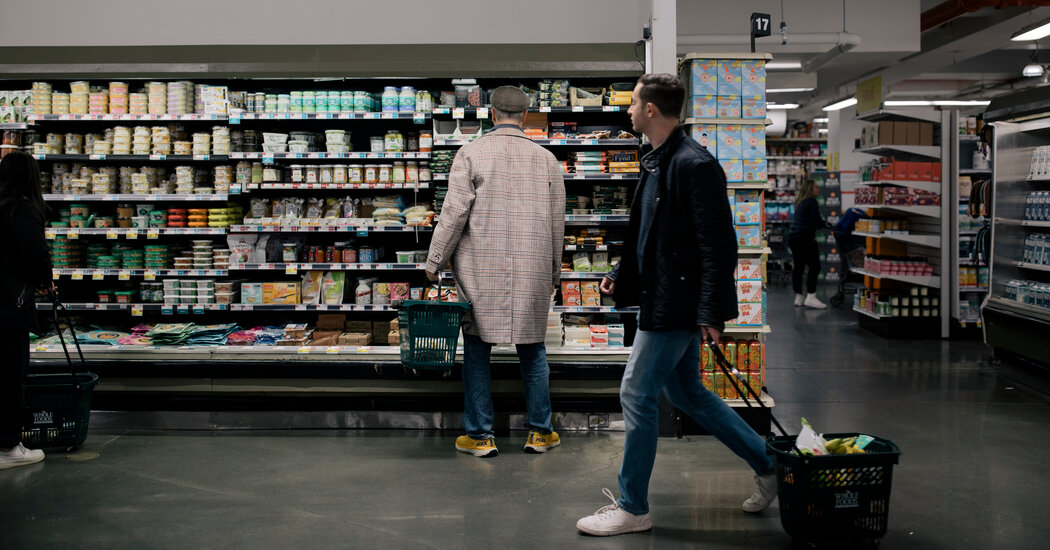
Some of the largest consumer brands in the country have continued to raise prices aggressively this year while raking in large profits, posing a tough problem for the Federal Reserve as it aims to tame inflation.
Coca-Cola, PepsiCo and Unilever have each reported raising prices significantly in the second quarter, from about 8 percent at Unilever to 15 percent at Pepsi. The price increases powered sales growth last quarter, keeping earnings strong even as the volume of products they sold either went down or remained flat versus the same period last year. The companies raised their full-year forecasts for various measures, pushing up their share prices.
The Fed’s main tool to tackle inflation is raising interest rates, which reduces demand for goods and services. But food prices can be particularly sticky: Unlike other goods, food is something that consumers cannot stop buying, and food prices are particularly sensitive to external factors like supply shocks, ingredient prices and geopolitics. Escalating Russian attacks in Ukraine and the recent breakdown of a deal to export grain from Black Sea ports have put pressure on prices for key commodities like corn and wheat.
“The Fed really has no ability to resolve those issues,” said David Ortega, a food economist at Michigan State University.
Prices for consumer goods in the United States have moderated, though inflation is still higher than the Federal Reserve’s goal. Food prices rose 5.7 percent over the year through June, according to the Consumer Price Index.
Coca-Cola said on Wednesday that its profit last quarter rose 33 percent from a year earlier, to $2.5 billion. “In a world with a wide spectrum of market dynamics from inflation to currency devaluation to shifting consumer needs, our business is proving to be very resilient,” James Quincey, Coca-Cola’s chief executive, told analysts on a call.
Unilever, which makes products like Dove soap and Hellmann’s mayonnaise, on Tuesday reported 20 percent growth in profit, to $5 billion, in the first half of the year, compared with the same period last year.
Unilever’s ice cream brands, which include Ben & Jerry’s and Magnum, have become particularly more expensive: Prices were up more than 12 percent while the amount sold was down about 6 percent in the second quarter.
PepsiCo, which makes Gatorade sports drinks, Lay’s potato chips and Quaker Oats, reported this month that its second-quarter revenue grew 10 percent and that its profit doubled, to $2.7 billion, from a year earlier.
The companies have cited a strong labor market, in which wages are growing, as source of increased spending.
“We’ve been able to raise prices and consumers stay within our brands,” Ramon Laguarta, chief executive of Pepsi, said on a call with analysts.
However, Unilever’s chief financial officer, Graeme Pitkethly, told analysts on Tuesday that “sentiment is dropping and consumers are starting to show signs of caution” with more consumers turning to generic brands.




